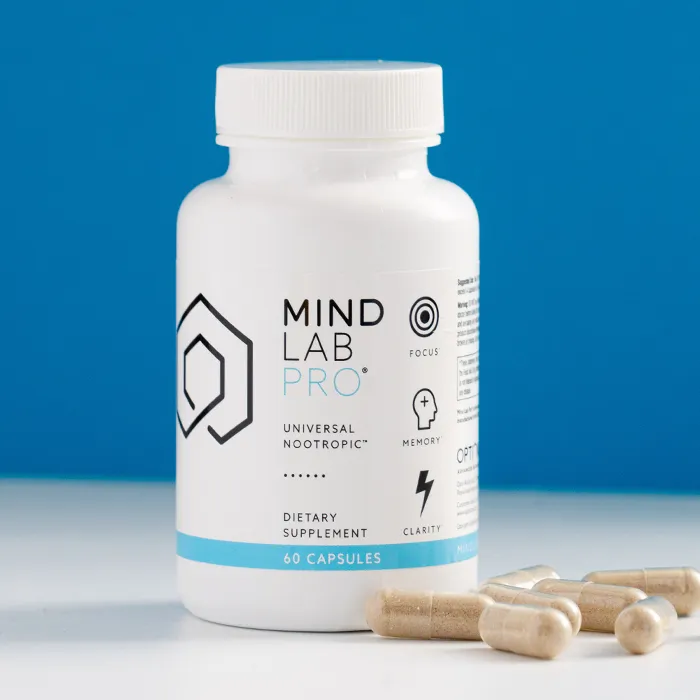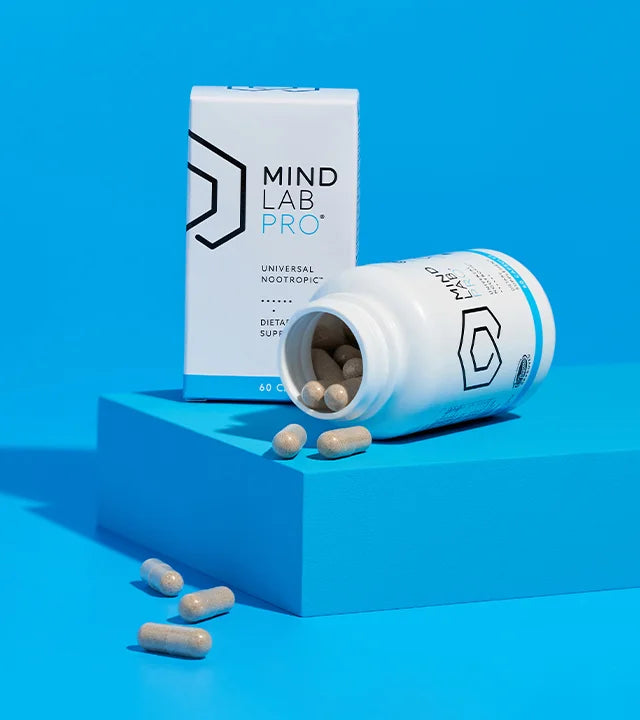You may have heard of citicoline and choline as being important chemicals for maintaining proper brain function. These two substances can often be confused, as they are different in how they metabolize, but also essentially the same in what benefits they offer the brain.
The main difference between citicoline and choline is that choline is naturally occurring in the body, whereas citicoline is often found in nutritional supplements - often as “Cognizin”.
Although, citicoline is thought to have additional benefits, which is why it’s often better to supplement with than choline.
Key Takeaways
- Both citicoline and choline support acetylcholine and brain function; choline is an essential nutrient the liver makes in small amounts, and we also obtain it from foods and supplements.
- Citicoline (often as Cognizin®) is more than “just choline”. It provides choline plus cytidine (→ uridine), supporting phosphatidylcholine and brain cell membranes.
- Why many choose citicoline: strong cognitive research footprint and practical use in nootropic stacks; your page positions it as the smarter supplement choice for brain performance.
- Label specifics: Mind Lab Pro® includes 250 mg Citicoline (Cognizin®) per serving alongside complementary nootropics.
- Bottom line: Choline is foundational nutrition; citicoline adds unique advantages for long-term brain health and performance—choose based on goals, budget and routine.
This article explores both citicoline and choline, how they work, what the benefits are, the differences between them, and which one is better to supplement with!

What is Citicoline?
Citicoline is one of the best nootropic compounds to exist and is linked to several cognitive-enhancing effects. It has been shown to improve focus, as well as memory and learning.
Citicoline helps deliver choline and cytidine to the brain. These compounds are known to enhance cognitive function and overall brain health, both being involved in the regulation of memory, mood, and muscle control, among many other functions.
When we ingest citicoline, we will, in turn, increase levels of acetylcholine, one of the key neurotransmitters responsible for many executive functions, such as speech, focus, and working memory.
An increase of citicoline would also result in increased levels of phosphatidylcholine, the building block of brain cells.
Citicoline Benefits
Citicoline offers many benefits to enhancing mental performance without the stimulant-like side effects. Some nootropic effects include:
- Promoting mood balance
- Improving focus, concentration, and attention
- Improving memory
- Fighting against age-related cognitive decline
Citicoline also helps increase levels of phosphatidylcholine, which would help:
- Maintain healthy brain function
- Support brain chemicals such as acetylcholine
- Protect the brain from free radicals and aging
- Promote overall brain health
I was skeptical at first, but I can say that I feel sharper and more clear minded than as long as I can remember.John Y

What is Choline?
Choline is an essential vitamin-like nutrient that is made naturally in our body by the liver. Though, the liver doesn’t produce quite enough for what we need, which is why we must get extra through diet and/or supplements.
Choline is found in foods such as egg yolks, liver, fish, and nuts, and can also be taken as a supplement.
It was once recognized as part of the B-vitamins group due to the similarities, but as it was only recently discovered back in the 80s, it’s a nutrient that’s continuing to be studied and investigated.
The role of Choline in the body
Choline plays a key role in many important processes in the body, including:
- Supporting cell structure
- Fat transport and metabolism
- DNA synthesis
- Required to make acetylcholine, an important neurotransmitter involved in memory, movement, and other basic functions
- Supporting memory and overall brain function
What are the Differences between Choline and Citicoline?

Now we have gone through the basics of citicoline and choline as separate compounds; you can probably see the similarities already.
Ingesting citicoline helps deliver choline and cytidine to the brain, so citicoline essentially confers choline, and is more bioavailable.
Therefore, there is not much difference regarding what benefits they provide the brain; they are simply different forms of the same nutrient.
Which One Should you Take? Choline or Citicoline3
While these two compounds provide the same benefits, there are definitely more peripheral benefits to taking citicoline. Not only is it more bioavailable than taking a standalone choline supplement, but it also provides us with cytidine.
The cytidine is what gives citicoline a unique advantage, as this compound metabolizes into uridine, which crosses the blood-brain barrier.
Uridine, once in the brain, helps to resynthesize choline into phosphatidylcholine, which, as we discussed earlier, is the building block of brain cells and promotes nerve-cell membrane growth.
Additionally, citicoline also supports mitochondrial function and energy production in the brain, and studies have suggested that it has a better safety profile than other forms of choline.1
This specifically refers to Cognizin, a patented citicoline form with benefits for brain energy, mental performance, and recall, backed by an abundance of research and found in Mind Lab Pro.
Conclusion: Citicoline vs Choline
Citicoline and choline are the same nutrient, though with different metabolic pathways. While they provide the same brain-boosting benefits, citicoline provides more peripheral benefits to long-term brain health due to the metabolism of cytidine, and thus uridine as a result.
You often find citicoline supplements as “Cognizin”, a form backed by numerous human trials and has been shown to enhance cognitive function while maintaining long-term brain health.
Citicoline, particularly as Cognizin, is the safer and more effective way to take choline as opposed to other forms of choline supplements.

References
- Synoradzki K, Grieb P. Citicoline: A Superior Form of Choline?. Nutrients. 2019;11(7):1569. Published 2019 Jul 12.


